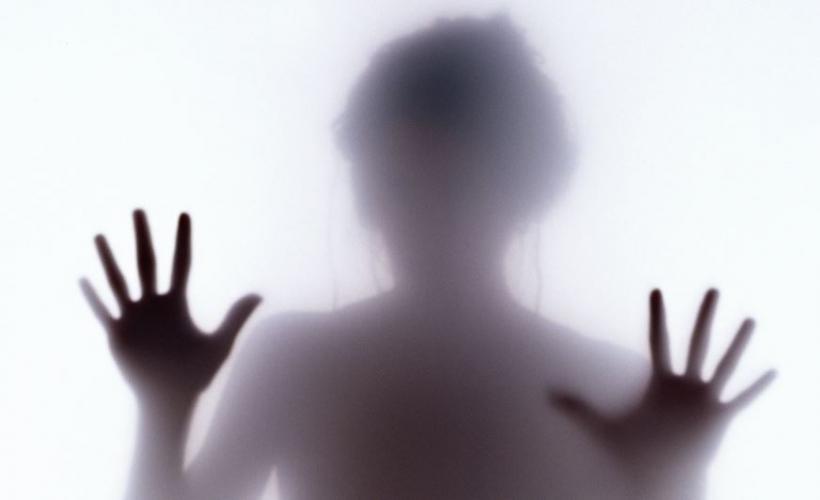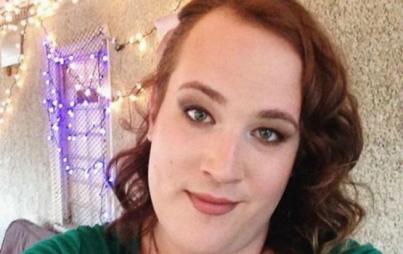
Credit: Thinkstock
In this excerpt from the new book Best Sex Writing of the Year, a trans woman questions a damning stereotype in the queer community.
My doctor, who is a trans woman, and I had a conversation today about the guy who raped me earlier this year. At first she was like "did you charge him?" When I explained that he's a trans man of color, she immediately got why I hadn't. Not because I couldn't bear to put a trans person, especially a trans person of color, in jail (which I can't), but because it would cause me to be completely ostracized by the queer/trans community in Toronto. I'd be "just another crazy trans woman." It was an uncomfortable realization for both of us to sit there, as trans women, knowing that we have literally no recourse when violence is enacted on us within the community (though if the same violence conveniently came from a white cis straight man, we would be celebrated as heroes for standing up to such an easy target, at least within the queer/trans community).
She and I both, as professionals in the community, are well aware of the fine line we have to walk in order to be taken seriously in the queer/trans community. We not only have to look a certain way (both in terms of passing and in terms of conforming to queer normative acceptable standards of appearance), we also have to make sure not to rock the boat too much. We have to appear as sane and calm as possible, no matter the circumstances. If we show too much emotion at any time (read: any inconvenient emotion), we get hit with a double whammy of misogyny and transphobia, quickly written off as hysterical "crazy trans women." Accuse the wrong person of something, anyone too close to queer-home, and that's the end of our credibility and the revoking of our entrance passes to Queerlandia.
It's exhausting having to walk such a fine line. I've found that there are so many "danger zones" to watch out for. Trans women have to not only be queer-literate (knowing queer social justice language), we have to be exceptionally good at using it. Any minor slip of language or politics and we're labeled "crazy trans women" by cis people while trans men nod knowingly in agreement—rarely standing up for us, and just as often perpetuating the "crazy trans woman" stereotype themselves.
I became aware of this initially through cryptic warnings from an older queer trans woman friend of mine, years before I became involved in the queer community, but I didn't realize the extent of it at first. That is, until I was invited to participate in it. When I first became involved heavily, I befriended two trans men whom I looked up to a great deal, and one of the first conversations we had in private was a gossip session in which they "warned" me about various trans women and got me to agree that they were "crazy." I've found similar conversations throughout the community, often used in a way that makes me wonder if what's really happening is that they're subconsciously testing my loyalty to the queer zeitgeist. Am I a good tranny or a bad tranny? Am I willing to be part of their clique, giving them the ability to deflect any and all criticism of transmisogyny, or am I a "problem"?
Before I realized that this was a system, that trans women were being systematically tested and written off, I engaged in it myself. You get a self-esteem boost, knowing that the cool kids don't count you among those trans women. Those trans women who stepped on the wrong toes, who take up "too much space," who don't have the right guilt-producing identity complex to be worthy of space (disabled young trans sex workers of color who vogue are considered highly prized friend-accessories, to be seen but not really heard beyond the occasional "gurl" for comedic effect, but only if they have the right haircut and the right clothes and are working towards a bachelors of gender studies or similarly useless degree).
Who are these "crazy trans women"? Often they are incredibly sincere activists who haven't had the privilege of being taught all of the ins and outs of anti-oppression social justice practice that is a prerequisite to membership in this queer community. Often they are labeled "too emotional" and "too angry," "loose cannons" who are out of control when speaking about our experiences of sex work that don't fit into the easily digestible "I do queer feminist porn on weekends to pay for my Fluevogs while I'm in grad school" vision of sex work that the queer community has deemed acceptable. Often they are trans women who are said to take up "too much space," while everyone whispers about how "you know, I know it's wrong to say, but she just seems like she has male privilege, you know? Like you can just feel it. Not that I'm saying she's a man, but, you know, you never know."
At the end of the day, this whole complex of issues is simply misogyny, ableism, and transphobia dressed up as "community accountability." It holds trans women to impossible standards, opening us up to vulnerability to all forms of in-community violence (physical, sexual, social), and creating a fear within the minds of so many queer trans women that our second-class position within the queer community could be ripped from our hands at any time for any minor infraction.
I'm tired of trying not to be a crazy trans woman in the voyeuristic eyes of the queer community.
Best Sex Writing of the Year: On Consent, BDSM, Porn, Race, Sex Work And More was released by Cleis Press on March 17. Share, like, or tweet this excerpt by Friday, April 3, to win a free copy of the book!







